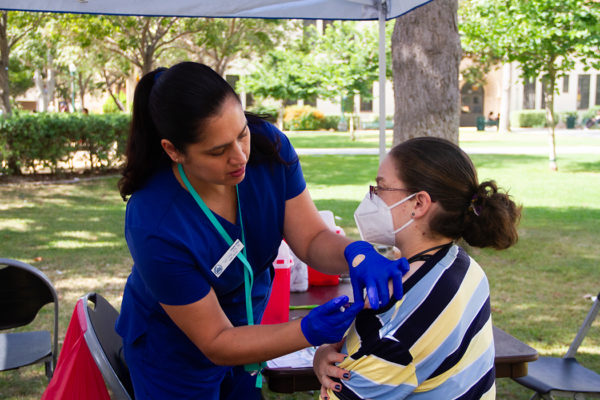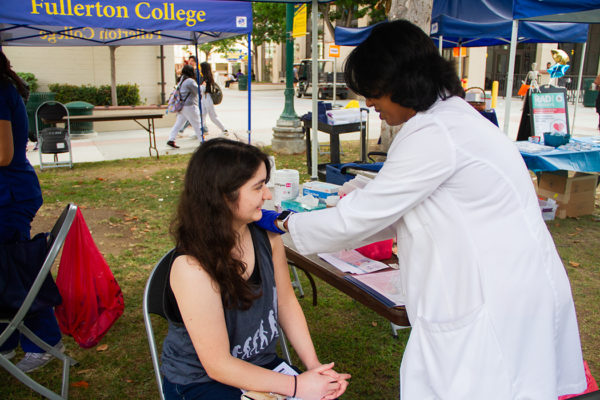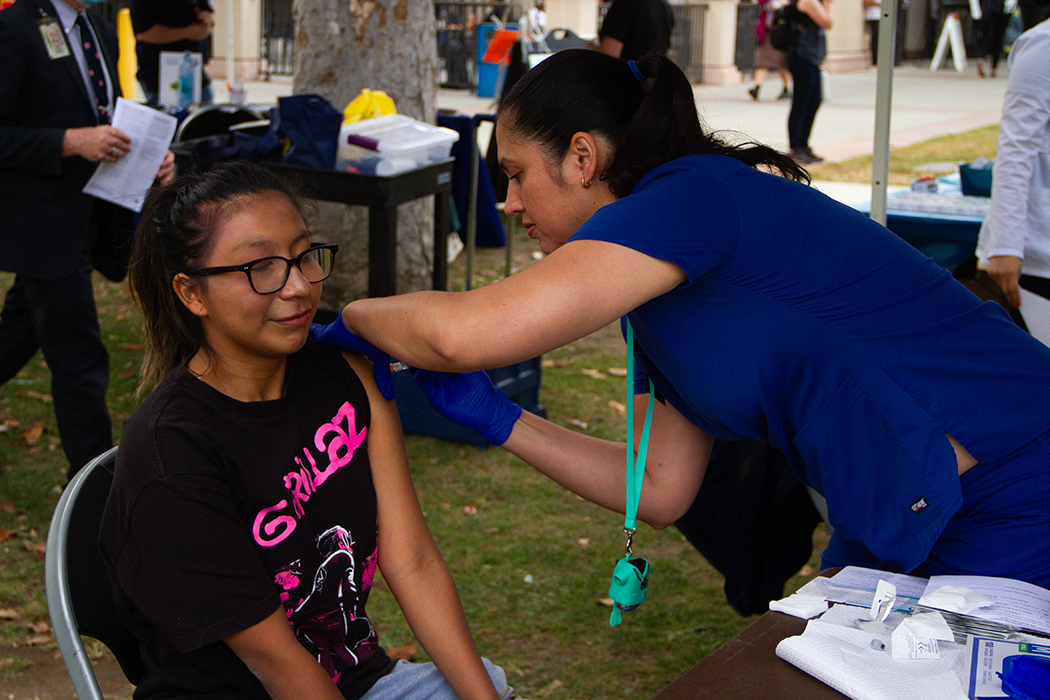The CDC states that influenza circulates in the United States from late fall to early spring. While most adults easily recover from the virus, older adults, children, and people with health conditions can experience serious complications. Pneumonia and bronchitis can develop from the flu, becoming potentially fatal for individuals in these categories.
To combat the spread of influenza, Fullerton College’s Health Center offered flu vaccination for free to students and faculty on Wednesday, Oct. 11, from 9:30a.m. to 2p.m. They placed a vaccination clinic in the quad, encouraging students to get vaccinated and stay protected.
“Today, the vaccinations are from the Orange County Health Care Agency,” said Health Education Coordinator Kelly Salazar. “They have opportunities for clinics to get vaccinations that they can give to the community. So, these will be free for students, staff, faculty, basically anyone who wants a shot today.”

The CDC recommends annual influenza vaccines for anybody and everybody six months and older. While effectiveness of the vaccine depends on age, health, and the strain of flu going around, vaccinations show to have a positive effect each flu season.
According to their website, the CDC states that from 2010 to 2016, influenza vaccines prevented over 1.6-6.7 million illnesses. In addition to that, vaccines also prevented 39,800-87,000 hospitalizations and over 3,000 respiratory and circulatory related deaths.
As the vaccine typically takes two weeks to take full effect, Salazar also explained the importance of getting it soon. “The flu vaccine protects us,” said Salazar, “Protects not only yourself but the people around you, get it early. October is a great time to get your flu vaccine. It will allow your body some time to build immunity as flu naturally is a winter-fall virus.”
The Health Center advised students to expect some minor soreness in their arm if they were being vaccinated for the first time against flu. First timers were asked to wait fifteen minutes to ensure no side effect or allergic reaction occurred.

“I think it’s important to protect myself and others,” said student Oliver Diederich, “I’m immunocompromised, I have family who’s immunocompromised.”
Along with vaccinations, the Health Center also offered free at-home COVID tests, hand sanitizer, and pamphlets providing information on cold and flu.
Epidemiologist David Dowdy said for the John Hopkins Bloomberg School of Health that COVID-19 brought a unique predicament to last year’s flu season. It was considered a “tripledemic,” with the flu, and the Respiratory Syncytial Virus still going around. Things are different this year.
Dowdy also explained that new vaccines for covid and influenza, along with the nirsevimab antibody for RSV, are protecting the public this year. As hospitalizations and deaths from COVID are declining, healthcare workers can focus on tackling flu this season.

If students, staff or faculty missed this opportunity, Salazar said that there is still vaccination going on, in the Health Center office. “The Health Center is also doing flu vaccines,” said Salazar. “Monday through Friday, 9 a.m.-4 p.m., appointments are encouraged, but walk-ins are welcome.”


